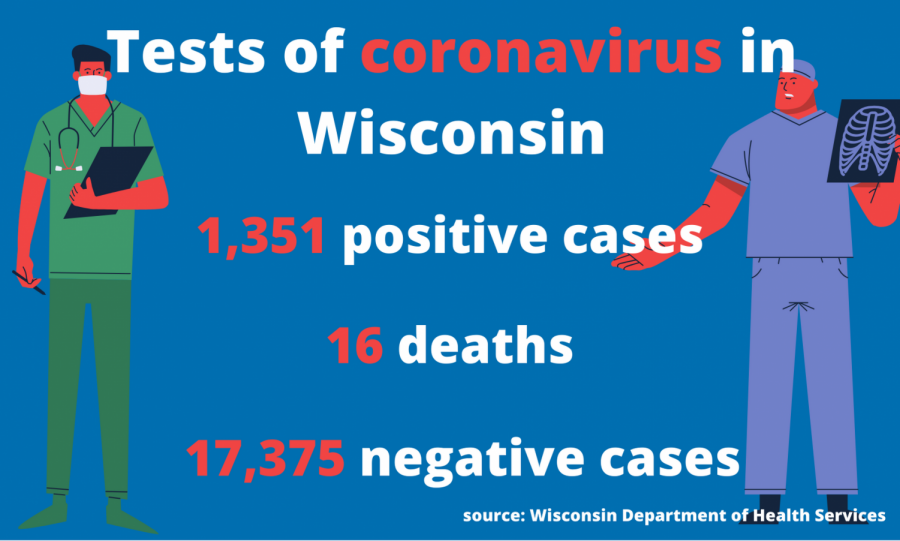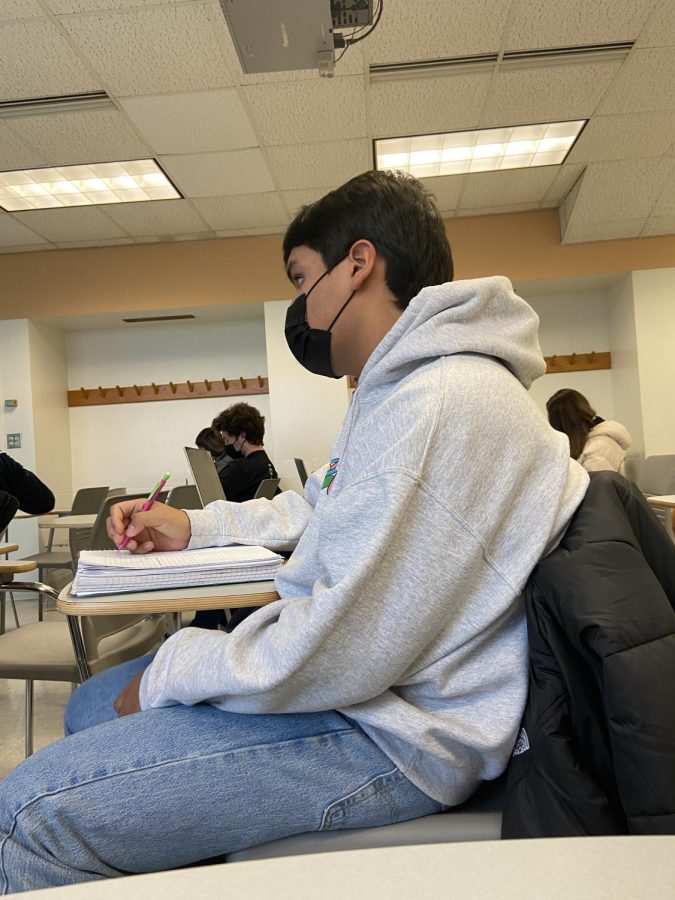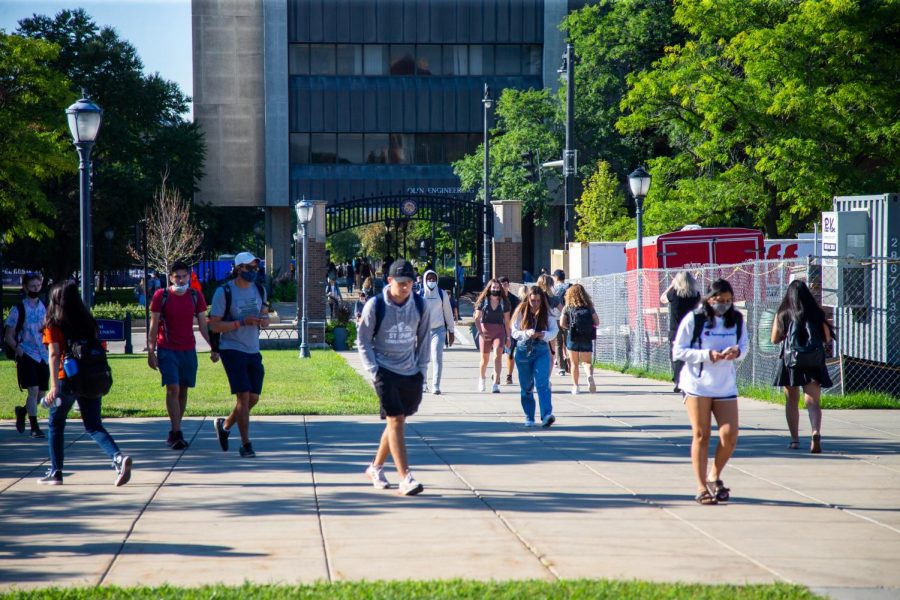The outbreak of the new coronavirus will likely have numerous impacts on the April 7 election in Wisconsin.
To combat the spread of COVID-19 in Wisconsin, Gov. Tony Evers recently issued an order called Safer at Home that prohibits all gatherings of any individuals who are not part of a single living unit and urges individuals to stay at home except for essential activities, such as grocery shopping. The order went into effect March 25 and is set to remain in place until April 24.
While some other states have delayed their primaries, including Ohio and New York, Wisconsin has not changed its date. Polling places will be open from 7 a.m. to 8 p.m. with specific procedures in place to ensure safety, including curbside, drive through and outdoor options.
However, March 27 Governor Tony Evers called for every voter in Wisconsin to request an absentee ballot.
To request an absentee ballot, individuals must be registered to vote. The deadline to register to vote online was March 30, and the deadline to request an absentee ballot is April 2. However, voters can still register on Election Day in person at the polls.
The April 7 election includes the presidential primary among various local elections, including the Milwaukee mayoral race and a seat on the Wisconsin Supreme Court.
Jen Reid, director of student affairs, sent an email to students Friday advising them on how to vote in Wisconsin if they registered and had planned to vote in Milwaukee.
For students who are from Wisconsin, the email said they could register to vote in their local municipality.
For students who are not from Wisconsin, the email said if students had planned to vote as a Wisconsin resident and did not have their Marquette Voter ID card, Marquette had no way to get students the ID card unless they were to return to campus.
The Wisconsin Elections Commission has since announced that it will accept scanned copies of the Marquette Voter ID card for uploading when students are requesting ballots or registering to vote.
Reid said that the Office of Public Affairs reached out to the Wisconsin Elections Commission with a proposed process and the proposal was accepted, allowing the scanned option.
Eric Rorholm, a senior in the College of Arts & Sciences and president of College Democrats, said he brought the issue of the voter ID cards being unavailable online to the Democratic Party of Wisconsin and it was added to a larger lawsuit against the state of Wisconsin.
Rorholm said there will be questions after this election if it was truly a fair and free election. Though students are now able to use online versions of the ID cards, the deadline to register online was March 30 — the same day that the approval from the commission came — making students less likely to have been able to register due to time constraint.
To get a voter ID card, students can submit requests online and sign electronically. The deadline to request an ID card is April 5 at 5 p.m.
The Marquette Card Office will then approve the information and then print the card, scan it and email a scanned copy back to students. Students can then print and use a copy when registering or requesting an absentee ballot.
Students who previously registered to vote but have since moved need to re-register. This includes moving rooms or apartments in a specific building, such as changing rooms in a residence hall.
To register to vote in person, students are able to register at the Municipal Clerk’s Office at the City of Milwaukee Election Commission up until the close of business April 3, or 4:45 p.m.
Proof of residence is required to register to vote in addition to identification. Marquette students can log into their Checkmarq accounts to access the required paperwork by navigating to their student account and clicking on student account activity.
Although options to vote are still available for interested students, it is likely that turnout will be lower, Amber Wichowsky, an associate professor of political science, said.
A barrier for students who requested an absentee ballot and have since moved locations is that they have to contact the municipal clerk because the ability to change it online has passed.
“We would expect younger voters to find it particularly challenging,” Wichowsky said. She said that from a public health perspective younger people may feel less concerned about in-person voting, but there are more hurdles to face on election day for younger voters such as being more unfamiliar with the process of absentee voting.
Rorholm said that absentee ballots can be filled out without a voter ID if someone is considered “indefinitely confined.” This means that those who qualify as confined in their home or other facility due to age, physical illness or infirmity, or are disabled for an indefinite period of time are able to request absentee ballots.
Wichowsky added that the current state of the presidential primary could decrease the motivation to vote: Joe Biden’s lead over Bernie Sanders may influence some Democratic voters into thinking they shouldn’t bother voting.
However, she said there are other significant races in the election.
“Normally, for these lower salience elections, going door-to-door and canvassing is an effective tactic in mobilizing voters,” she said. Groups have put a halt on canvassing because of the coronavirus, removing one type of social pressure that motivates voters.
Riordan Brennan, a sophomore in the College of Arts & Sciences from Illinois, registered to vote in Wisconsin shortly after he arrived at Marquette. He first voted in Wisconsin in the 2018 midterm general election.
Brennan said it is difficult to predict what turnout will look like because it’s unclear how many people would have turned out if not for the coronavirus.
“Its already hard enough for college students to vote in the state they’re going to school in,” Brennan said, emphasizing that the outbreak could cause additional problems in the current circumstances.
Brennan also said that voter turnout for local elections is often low and this outbreak can bring it even lower. He emphasized the local issues in this election due to the fact that Joe Biden has a large lead in delegate count.
However, in 2018, Wisconsin had a record-breaking year for midterm election turnout, with nearly 2.7 million voters.
Rorholm said that elections in Wisconsin are often won by slim margins, and a lot of students in particular may not be voting.
“It’s heartbreaking because the last election was won by a few thousand votes, and there are 14,000 students at Marquette,” he said.
Despite the barriers, Brennan said that it is especially important to be voting right now.
“If you look around you and look at all the chaos that is going on … The people you would be voting for are the people who would be making the decisions right now and as we can see these decisions are extremely consequential,” Brennan said.
This story was written by Annie Mattea. She can be reached at [email protected].








